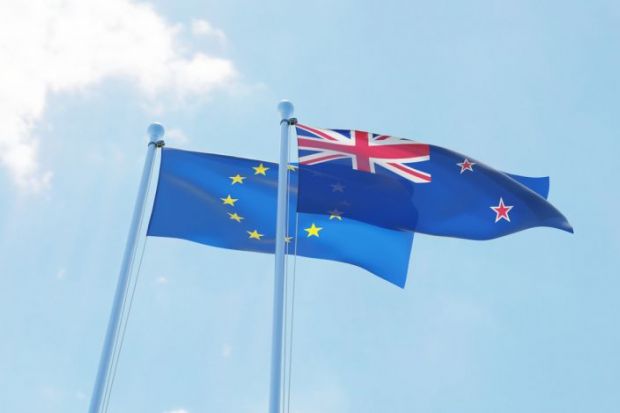From next year researchers in New Zealand will be able to join collaborative research projects in the European Union’s €90 billion (£79 billion) Horizon Europe programme, after the country and bloc agreed on terms.
The European Commission said the agreement would mark the first time a highly industrialised country outside Europe has formally joined the programme through association. Next in the queue is Canada, which began formal association talks at the end of November and is set to agree terms by spring next year.
Speaking at the start of formal talks in October, New Zealand science minister Ayesha Verrall saidthat the EU and New Zealand were “natural partners” in areas such as environmental research, including reducing emissions from agriculture. “Becoming an associated country of Horizon Europe would reflect our deep relationship and shared values, especially at a time of disruption and uncertainty,” she said.
New Zealand-based researchers will be able to apply to the second “pillar” of the programme, which has a budget of €53.5 billion and is themed around global challenges and European industrial competitiveness.
Horizon Europe funding calls are open to countries worldwide, but most proposals must include partners from three different EU or associated countries. Partners from non-associated countries cannot receive EU funding or coordinate projects.
“With a solid scientific base and more than half of New Zealand’s researchers having an active collaboration with a European partner, the country has been a trusted EU partner for many years now,” EU research commissioner Mariya Gabriel said in a statement.
Ms Gabriel said that the programme had been redesigned to strengthen links with non-EU countries with a “robust scientific and research track-record”. Aside from Canada and New Zealand, the EU’s global research strategy lists Australia, Japan, South Korea and Singapore as targets for closer cooperation, including association.
EU officials are in the midst of early association talks with South Korea and Japan, while Israel and Norway joined the programme more than a year ago. More modest additions to the association roster so far include Armenia, Moldova, Turkey, Tunisia and Ukraine, plus the western Balkan countries of Bosnia and Herzegovina, Kosovo, Montenegro, North Macedonia and Serbia.
The UK, which was due to associate through the terms of its wider Brexit deal, has yet to receive a final signature from the EU commission. It has launched legal complaints over the delay and appears to be reallocating funds to domestic alternatives.
Register to continue
Why register?
- Registration is free and only takes a moment
- Once registered, you can read 3 articles a month
- Sign up for our newsletter
Subscribe
Or subscribe for unlimited access to:
- Unlimited access to news, views, insights & reviews
- Digital editions
- Digital access to THE’s university and college rankings analysis
Already registered or a current subscriber? Login








